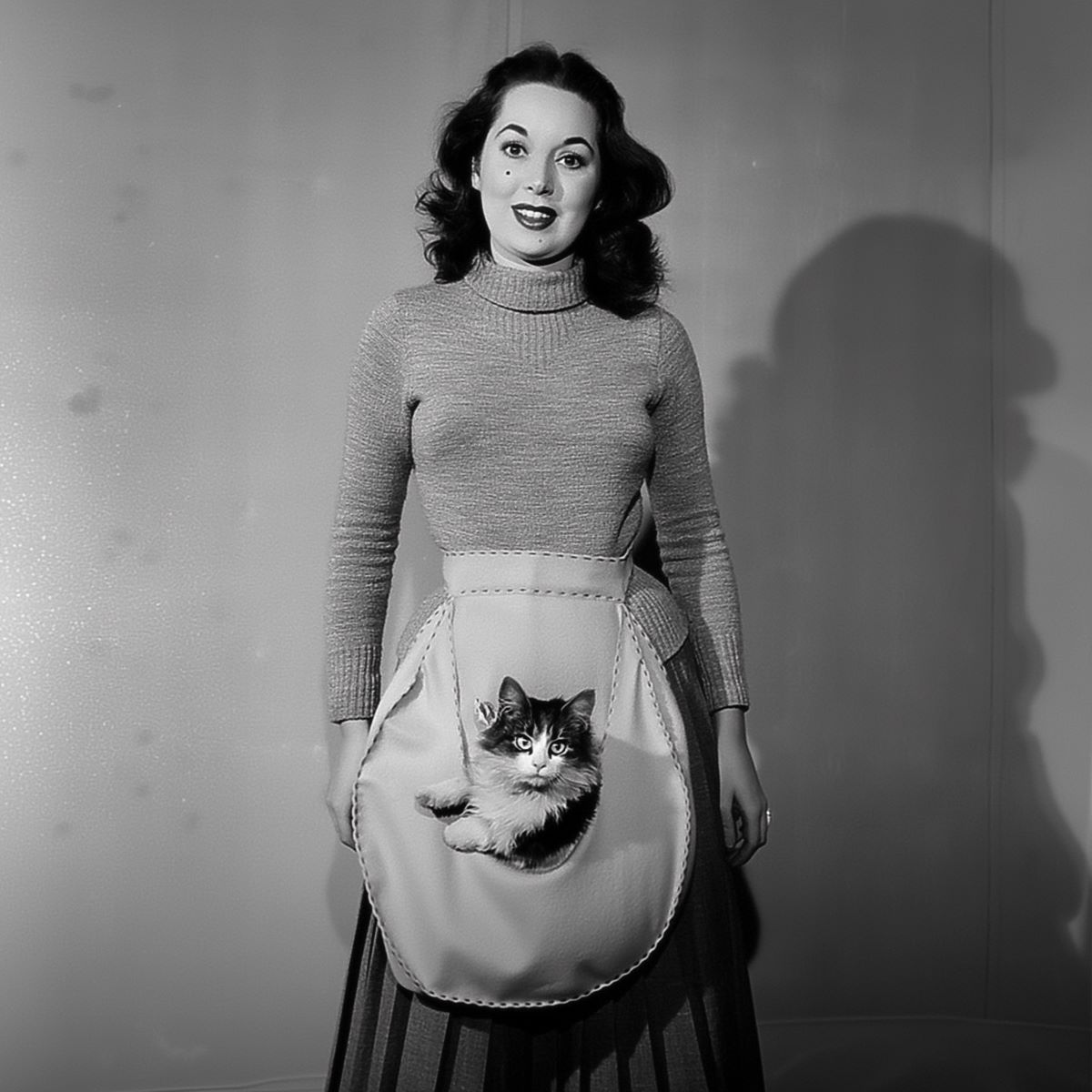
Moon in the 4th House: Carrying Home Wherever You Go—Literally
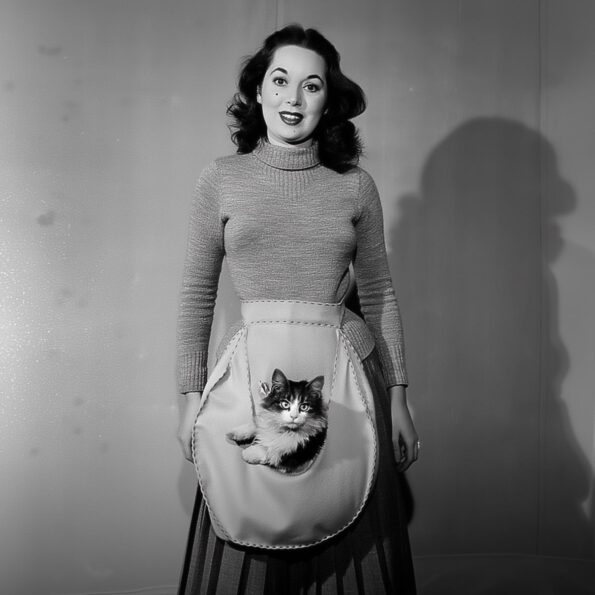 When you have the Moon in the 4th house, you’re wrapped you in the warm, familiar arms of home, memory, and deep emotional roots. This isn’t only a fondness for home-cooked meals and a fluffy blanket; this is an umbilical cord tying you to the idea of belonging in the deepest possible sense. While some might see “home” as a resting place, for you, it’s a sanctuary. A place where your soul reclines in its most natural state. This placement means home is an extension of you. It’s where your emotions are processed, where childhood still lingers, and where your intuition is at its most potent. There’s likely a streak of nostalgia running through you like veins of gold in marble. You not only remember the past—you feel it. Old photographs, familiar scents, the sound of rain against the window—these are portals that transport you to another time.
When you have the Moon in the 4th house, you’re wrapped you in the warm, familiar arms of home, memory, and deep emotional roots. This isn’t only a fondness for home-cooked meals and a fluffy blanket; this is an umbilical cord tying you to the idea of belonging in the deepest possible sense. While some might see “home” as a resting place, for you, it’s a sanctuary. A place where your soul reclines in its most natural state. This placement means home is an extension of you. It’s where your emotions are processed, where childhood still lingers, and where your intuition is at its most potent. There’s likely a streak of nostalgia running through you like veins of gold in marble. You not only remember the past—you feel it. Old photographs, familiar scents, the sound of rain against the window—these are portals that transport you to another time.
There is also patriotism here, but not necessarily in the flag-waving, firework-blazing sense (unless other chart aspects reinforce that). This is more the deep, unshakable connection to the concept of home—whether it’s a place, a lineage, a set of values, or even a found family. You could find yourself fiercely protective of your origins, your ancestry, or the traditions that shape you. But you do have a deep vulnerability! Because when home is the heart, any disruption to it—family tensions, moving house, emotional upheaval—feels seismic. For you, it’s not an inconvenience; it’s a dislocation of the soul. Your sense of security is deeply intertwined with stability in your personal life, so when things shift, it can stir up emotional insecurity.
No matter what changes outside of you, that deep emotional core remains intact. You carry home in your bones, in your memories, in your heart.
Roots
The Moon in the 4th house is where emotions take root, stretching their tendrils into the deepest soil of your being. This is a placement of feeling, a primordial imprint that was etched into your soul before you even knew words, before you could logically dissect the world around you. Your emotional foundations were set in motion before you had the agency to question them, which means that what you absorbed in childhood still holds sway over your emotional reactions today. Was home a warm place of love? Or was it a place where security felt fragile, emotions ran high, or attachment was laced with longing? Either way, those early impressions are carried with you like an old, well-worn blanket—sometimes comforting, sometimes suffocating.
There can be deep attachment here—sometimes too deep. Family ties may feel like an unbreakable thread, one that secures or entangles, depending on the circumstances. There’s a need to feel connected, but at times, that can manifest as dependency, nostalgia that turns into stagnation, or an unconscious pull toward familial patterns, even when they no longer serve you.
You have an innate sense of what makes a home, not only physically but energetically. You create spaces that feel safe, whether for yourself or for those you love. You are the keeper of emotional history, the one who remembers, the one who feels deeply. And while the Moon here may be hidden in the lowest, most private part of the chart, its influence is anything but weak. It’s the foundation upon which everything else is built. Which means the work is in knowing when to rise from them—when to evolve beyond the past, when to create a home that reflects who you are, not just where you came from.
The Basement of the Soul
Liz Greene says that the 4th house is the basement of the soul, where all the childhood issues, and unprocessed emotions reside. And when the Moon is down there? You don’t just visit this basement—you live there. This is where the unconscious runs the show unless you make it conscious. The Moon in the 4th house is a river that’s been flowing long before you arrived—carrying the emotional sediment of past generations, learned responses, unspoken fears, and instinctive habits that feel like they belong to you but may, in fact, be inherited.
The 4th house is the shadowy realm where our most primal, inherited, and often unexamined emotions dwell. You may find yourself reacting not as the person you are today, but as a composite of the generations that came before—a bundle of older responses dressed up as your own feelings.
If there are hard aspects? This river doesn’t flow—it floods. Emotional reactions become automatic, deeply conditioned, and sometimes frustratingly hard to control. You may find yourself responding to situations not as you wish to, but as your family would have—as if their ghosts are possessing your instincts. These tensions act like fault lines, making the ground of your emotional landscape more susceptible to tremors. Family patterns become more pronounced, like a haunting refrain that plays louder in times of stress or conflict. You might feel trapped in a loop, repeating emotional scripts that were handed to you before you even knew you had a choice.
Examples
The Moon-Saturn aspect in the 4th house is the part of your psyche telling you to hold it together, to be responsible, to keep a lid on emotions because—well, that’s just how it’s always been done. You may find yourself responding to life not with the fluidity of feeling but with an almost mechanical approach to emotion. Maybe you were raised in an environment where love had conditions, where care came with expectations, where vulnerability was something to be managed rather than expressed. If you had caregivers who were distant, strict, or preoccupied with duty, you may have unconsciously absorbed that as the way to be. You feel deeply—you do. It’s just that somewhere along the way, you learned that emotions needed to be controlled, parceled out in acceptable doses, and perhaps, in some moments, suppressed entirely. And then there’s Moon-Pluto in the 4th—a different beast, but just as deeply ingrained. Here, the emotional world is a stormy, subterranean thing, full of intensity, secrecy, and unspoken undercurrents. You might find yourself responding to situations with an emotional force that feels bigger than the moment itself, because—whether you know it or not—you’re carrying a legacy of past wounds, past betrayals, past power struggles that existed long before you came along. If your family history was riddled with unprocessed grief, with secrecy, with emotional power dynamics, you may unconsciously find yourself repeating them. There’s often a feeling of needing to control emotions, either by suppressing them entirely or by becoming so emotionally consuming that no one could possibly ignore you. Love might feel like a high-stakes game, a test of loyalty, an all-or-nothing proposition.
In both cases, there’s an invisible thread that binds you to the past, to the emotions and reactions of those who came before you. You may find yourself responding in ways that don’t feel entirely yours—a coldness that you don’t truly intend, an emotional intensity that seems to rise from nowhere. And that’s the work of the 4th house, really—to unearth these subconscious imprints and bring them into the light, so that you’re no longer just playing along.
It’s worth asking yourself, when you find yourself reacting in a certain way—is this really me? Or is this the ghost of my past, my lineage, my upbringing speaking through me? The beauty of awareness is that once you see the pattern, it loses its grip.You can choose a new way, a new emotional reality, one that is truly yours. It’s catching yourself mid-sentence and thinking, Wait… is this actually me? Or is this just the echo of something older? The 4th house is where we begin, but it’s not where we have to end. The Moon here gives you depth, memory, emotional intelligence—but it asks for conscious engagement. If you can bring the hidden tides to the surface, work through the family complexes, and decide which emotions are truly yours, then the Moon in the 4th becomes a source of inner stability rather than an unconscious undertow.
A Need to Belong
The Moon in the 4th house means that your very soul is braided into the idea of home, as a feeling, a refuge, a deep emotional foundation. It’s not enough to simply live somewhere; you need to belong there, to feel that the walls hold your history, your energy, and your essence. When home feels right, you flourish. When it’s unstable, it can send tremors through every other area of your life, shaking your sense of security at its very core.
The need to start your own family, or at least carve out a sanctuary that is truly yours, is a fundamental necessity. Without it, you may feel unmoored, as if the world is too chaotic, too unpredictable to manage. There can be a deep craving for emotional safety, a place where you can retreat, turn inward, and simply be. And when that sense of security is disrupted—whether through family discord, moving too often, or emotional instability at home—it can ripple outward, affecting work, relationships, and even your physical well-being.
There’s something deeply instinctual about the way you express care. You offer support, hold people in an emotional sense, make them feel safe, seen, and protected. But this can sometimes turn into over-attachment, an unconscious need to recreate the warmth and security that perhaps wasn’t always there in childhood. When you love, you do so with the fierce protectiveness of someone who understands, on a visceral level, what it means to need shelter—not just from the world, but from one’s own inner storms.
And then there’s that eerie, almost mystical connection to certain places you may encounter. The feeling of déjà vu, the sense that you know a place even if you’ve never been there before. Sometimes it’s a specific house, a landscape, a city that tugs at you like an old memory, as if a part of you belongs to it—or perhaps, as if it belongs to you. Some places feel like they remember you, even if you’ve never stepped foot in them before. You walk down a street, enter a house, stand on a certain piece of land, and something stirs in your bones—familiar, yet elusive, like a dream you’re trying to recall. This is no coincidence. With the Moon in the 4th house, your connection to certain places runs deeper than logic. It may stem from childhood memories, ancestral ties, or even something more mysterious—past lives, karmic imprints, a thread of belonging that stretches beyond time. Home, for you, is where you feel you’ve lived before. You may be drawn to places that hold deep emotional significance—family homes, ancestral lands, cities or towns that seem to call to you, even if you don’t know why. And when you find a place that feels right, it’s a deep recognition. Something inside you exhales and says, There you are. Moving, displacement, or instability in your home life can feel so disorienting. You root yourself to your place of residence. And if those roots are disturbed, it can unsettle you on a profound level, making you feel as though the ground beneath you is shifting. But, in time, you learn that home is not really external—it’s something you carry within you. And once you find that inner belonging, every place you step into has the potential to become home.
A Psychological Hold
When the world outside feels chaotic, overwhelming, or uncertain, the instinct isn’t to charge forward into the unknown—it’s to retreat, to cling, to wrap yourself in the familiar like a child gripping their most cherished possession. Home, in whatever form it takes, is where you feel. Your emotions are tied there, bound up in childhood. And because of that, early experiences—whether warm and nurturing or cold and unstable—have a stronger psychological grip on you than they might on others. The past not only lives in memory; it lingers in the body, in the subconscious, in the instinctive ways you react to life.
If childhood was steady, filled with love and care, you may find deep emotional security in family, home life, and traditions. But if there was trauma, disruption, or emotional unrest, it can create a loop—a pattern that repeats itself in unconscious ways. When stress hits, you may find yourself grasping for the past, for the people, places, and routines that once made you feel safe, even if they no longer serve you. The familiarity itself becomes the security blanket, regardless of whether it’s healthy or not.
To cling is, at its heart, an act of preservation. Sometimes it’s a lifeline, a grounding force that keeps you steady in a storm. Other times, it’s a weight around your ankles, keeping you clinging to something that no longer serves you. So the question isn’t should you cling—it’s what you cling to, and whether it nourishes or stifles you. You can healthily hold on to roots, but not ruts. A deep connection to home, heritage, and family can be a source of strength. When you can look back at your history without letting it define your future, you’re honoring where you came from while still allowing yourself to grow. Traditions that bring comfort, relationships that offer genuine security, and a sense of belonging that doesn’t demand self-sacrifice—these stabilize rather than suffocate. Where things go awry is when the clinging becomes fear-driven. If you hold on to people not because they are good for you, but because you’re terrified of being alone, that’s when the Moon in the 4th turns into an emotional trap. You may find yourself stuck in familial roles that no longer fit, bound by guilt or obligation rather than love. Or perhaps you unconsciously repeat patterns—returning to the same type of relationships, the same coping mechanisms, the same emotional cycles—because they are familiar, not because they are fulfilling. Nostalgia, too, can be a deceptive comfort. The past can become a place where you mentally live rather than just visit. If you find yourself retreating into memories, longing for a time when things felt safe, instead of creating this security in the present, then the clinging becomes a hindrance rather than a help.
Old Record Player
The Moon in the 4th house is akin to living with an old record player in your mind, spinning memories, emotions, and past experiences on a loop. No matter how much time passes, the grooves of the past are still there, etched into the subconscious, ready to replay at the slightest trigger. You’re not only remembering—you’re reliving. A smell, a song, a familiar look in someone’s eyes, and suddenly you’re back there, feeling it all as if no time has passed.
This is why moving forward can feel so elusive at times. It’s not that you don’t want to grow, it’s just that the past has a gravitational pull. Emotional imprinting runs deep—so deep that certain reactions, habits, and ways of relating to others don’t feel like choices so much as inevitabilities. You might find yourself responding to the present with emotions that belong to the past, as if you’re still operating from a childhood version of yourself. And the hardest part? A lot of it happens below the surface, instinctively, without you even realizing it.
This why stability is everything for you. You need emotional security like oxygen. When your foundation feels solid, when you have a place—physical, emotional, or both—where you feel safe, then you can move through life with confidence. But when home, family, or your inner world feels shaky, everything else becomes harder. Your inner sense of psychological balance is directly tied to your sense of belonging. When that’s disrupted, the old emotional record starts spinning again, playing old fears, old defenses, old ways of coping.
This placement can also make you deeply private and self-protective. The world outside can feel unpredictable, but if you can control who has access to your inner world, you can maintain a sense of safety. Trust isn’t given lightly—it has to be earned, because you know, better than most, that emotional security isn’t something to take for granted. But here’s the thing—those early imprints can be rewritten. The grooves in the record aren’t set in stone. It takes awareness, patience, and sometimes a conscious effort to stop, take a breath, and ask, Is this feeling from the present, or is this from the past? Over time, as you build new experiences of security, new emotional truths, and a deeper sense of trust in yourself, you’ll find that you don’t have to keep replaying the old record. You can play something new—something that reflects who you are now, not just where you’ve been.
Back Home
No matter how far you go, no matter how much life pulls you into new experiences, there’s always an instinctive draw back. Back home, back to the familiar, back to the place where your roots were first planted—whether it’s the actual house you grew up in or a deep emotional need for a home base to retreat to. It’s not nostalgia; it’s psychological survival. When the outside world becomes too much, when life overwhelms, your first instinct isn’t to push through—it’s to return.
And this isn’t weakness; it’s simply how you process. You don’t find strength by charging ahead recklessly—you find it by regrouping, by sinking back into a space that feels safe enough to let the emotional waves settle before you move forward again. Some people need adventure to feel alive, but you need belonging. If that sense of belonging is threatened—whether by family troubles, an unstable home, or even just emotional disconnection—it can throw everything else off balance.
Even if home wasn’t always a place of comfort, the pull is still there. The past has a magnetic quality, unfinished emotions keep calling you back, maybe there’s something there that still needs to be understood, processed, or healed. And if home was good, then that connection is even stronger—the need to return to the warmth, the memories, the emotional anchor that shaped you.
Your sensitivity to family is profound. Their joys, their struggles, their triumphs—you don’t observe them; you feel them, almost as if they were happening to you. And if something happens within the family, no matter how much you try to focus on your own life, there’s the familiar pull—the Moon calling you back, urging you to check in, to reconnect, to be there.
Even when you move, even if you build a life completely different from the one you grew up in, there will always be certain places that call to you—old streets, familiar landscapes, houses that feel like they hold the memories of your past. Your soul leaves markers in the places that have shaped you, and every now and then, you feel the need to return and touch them, just to remind yourself of who you are and where you came from.
When the world presses in too hard, when stress reaches its peak, you retreat. It’s not a conscious choice, not something you plan—it’s instinctual. You return to the past. The familiar. The places, people, and rituals that first made you feel safe. Maybe it’s curling up with your childhood comfort food, perhaps a bowl of soup or a favorite sweet can physically transport you to a time when life felt simpler. Maybe it’s digging out old photo albums, running your fingers over the faces of your younger self and long-gone moments, as if to remind yourself that you existed before the weight of responsibility. Maybe it’s watching old shows, listening to songs that played in the background of your early years, wrapping yourself in a scent, a memory, a place that makes you feel, just for a moment, held.
You may not even know why. The Moon in the 4th house feels, deeply and often irrationally. The past is a living, breathing part of your emotional landscape. And when life gets too much, it calls to you, luring you back to it, offering a kind of soothing that logic doesn’t always understand. Some might call it regression, but really, it’s your Moon trying to find safety. When things feel overwhelming, your psyche craves something known, something constant, something that reminds you of where you came from. And while there’s nothing wrong with seeking comfort in the past, the key is making sure it’s a soft place to land rather than a place to stay. Because while your past shaped you, it isn’t meant to contain you.
Idyllic Childhood
This isn’t about some idyllic childhood refuge that you can always run back to. For many with the Moon in the 4th house, childhood wasn’t safe, loving, or even particularly kind. So when stress pulls you back, it’s not necessarily to a warm, homely place—it might be to ghosts, to old wounds, to the places where things first went wrong. But still, the Moon goes there, because that’s where the imprint was made, where the roots of your emotions took hold.
If childhood was difficult, then returning to it in moments of distress may be due to a need to understand. Your Moon might be trying to retrace its steps, looking for the moment where the pattern started, where the feelings of insecurity, abandonment, or longing were first planted. Your psyche believes that by revisiting the past, you might finally be able to make sense of it, rewrite the story, and find the missing piece that explains why you feel what you feel now.
This is why so many with this placement spend their lives searching for home. It’s the thing that was missing, the thing you’ve been trying to recreate, whether that’s safety, love, belonging, or just a sense of deep emotional rightness. Some find it in an actual house, a town, a landscape that resonates. Others find it in people, in relationships that give them the security they never had growing up. And some never stop searching, because “home” has always been an elusive thing, more of a longing than a destination.
Maybe you stay close to familiar places and faces because even if childhood wasn’t perfect, the familiarity itself brings a kind of grounding. Or maybe you’re one of those restless Moon in the 4th souls, always moving, always looking, because you’re determined to find the place that finally feels right. And when you do find it—whether in a house, a person, or within yourself—it won’t just be a place you live. It will be the place where your heart finally exhales.


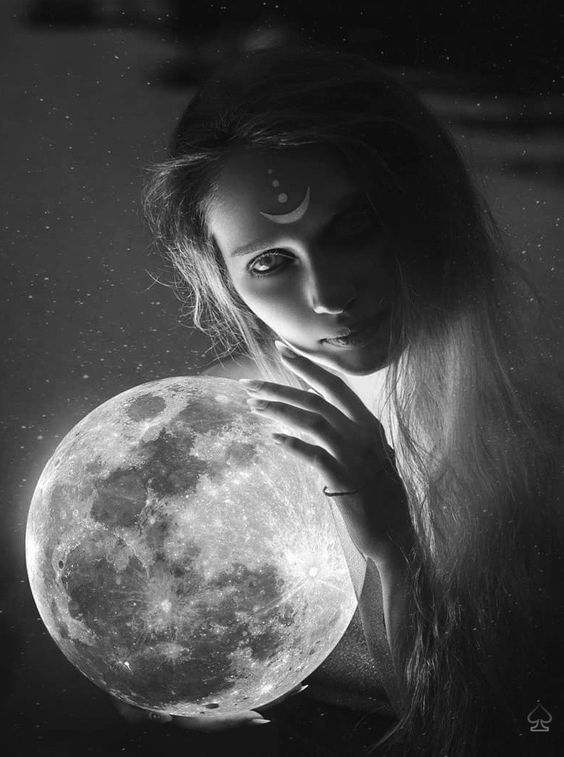
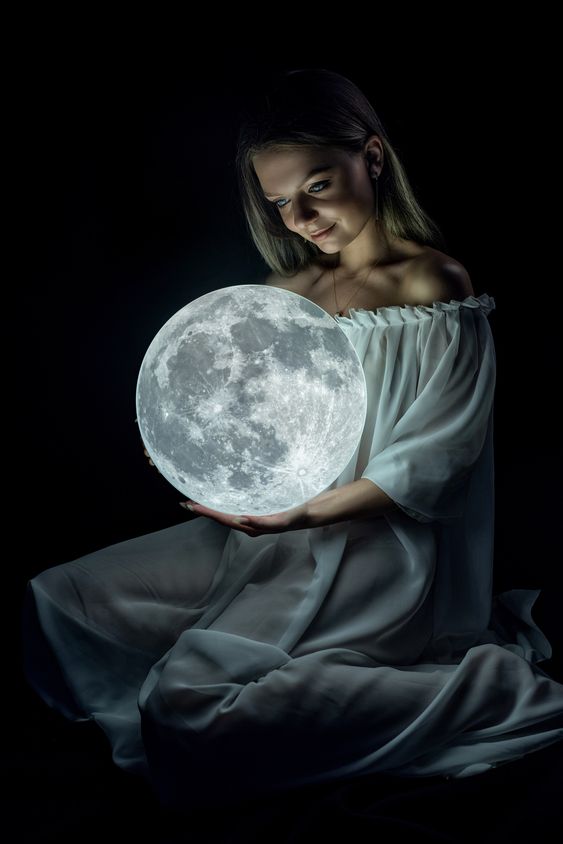

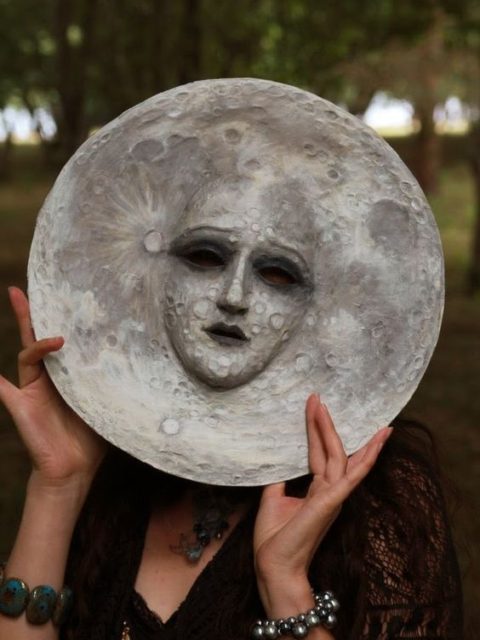


 Sun Square Pluto Synastry: You’ve Got That Power Over Me
Sun Square Pluto Synastry: You’ve Got That Power Over Me
 Scorpio’s Cold Withdrawal
Scorpio’s Cold Withdrawal
 Moon Conjunct Pluto Synastry
Moon Conjunct Pluto Synastry
 Venus-Pluto Synastry: A Love So Powerful That It Might Just Kill Them
Venus-Pluto Synastry: A Love So Powerful That It Might Just Kill Them
 Mars Square Pluto Natal Aspect: The Unbreakable Spirit
Mars Square Pluto Natal Aspect: The Unbreakable Spirit
 Reflections on a Past Venus-Pluto Synastry Aspect
Reflections on a Past Venus-Pluto Synastry Aspect
 Mercury Conjunct Venus Synastry
Mercury Conjunct Venus Synastry
 Mars-Pluto Synastry: Something Quite Dark and Dangerous
Mars-Pluto Synastry: Something Quite Dark and Dangerous
 Uranus Transits 8th the House: Rebirth from Chaos
Uranus Transits 8th the House: Rebirth from Chaos
 Venus Trine Mars Synastry
Venus Trine Mars Synastry
 Mars-Saturn Synastry: The Eternal Loop
Mars-Saturn Synastry: The Eternal Loop
 Composite Sun in the 8th House: Weather the Storm
Composite Sun in the 8th House: Weather the Storm
 Mars in Aquarius: Sex drive
Mars in Aquarius: Sex drive
 Sun Conjunct Pluto Synastry: Enlightening or Annihilating
Sun Conjunct Pluto Synastry: Enlightening or Annihilating
 Venus Trine Pluto: Dark Desires
Venus Trine Pluto: Dark Desires
 Mars Conjunct Pluto Synastry
Mars Conjunct Pluto Synastry
 Moon Opposite Uranus Natal Aspect
Moon Opposite Uranus Natal Aspect
 The Watery Gardeners: Cancer, Scorpio, and Pisces
The Watery Gardeners: Cancer, Scorpio, and Pisces
 Transiting Pluto Aspect Natal Mars: Are You Mad as Hell
Transiting Pluto Aspect Natal Mars: Are You Mad as Hell
 Moon Conjunct Pluto Natal Aspect: Emotional X-Ray Vision – Seeing Through Souls Since Birth
Moon Conjunct Pluto Natal Aspect: Emotional X-Ray Vision – Seeing Through Souls Since Birth